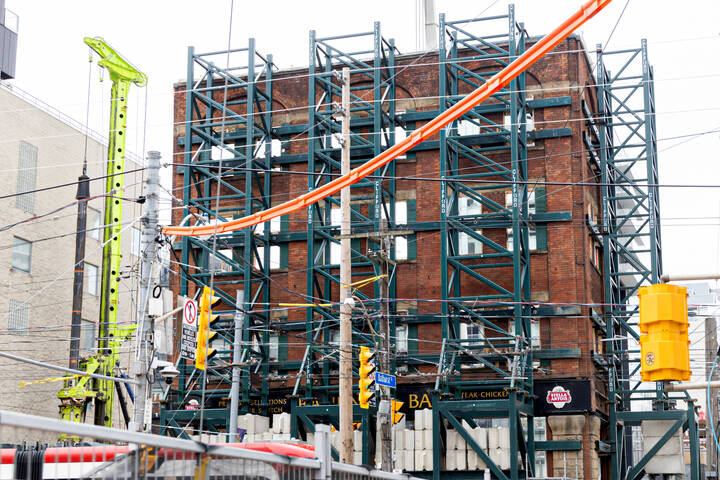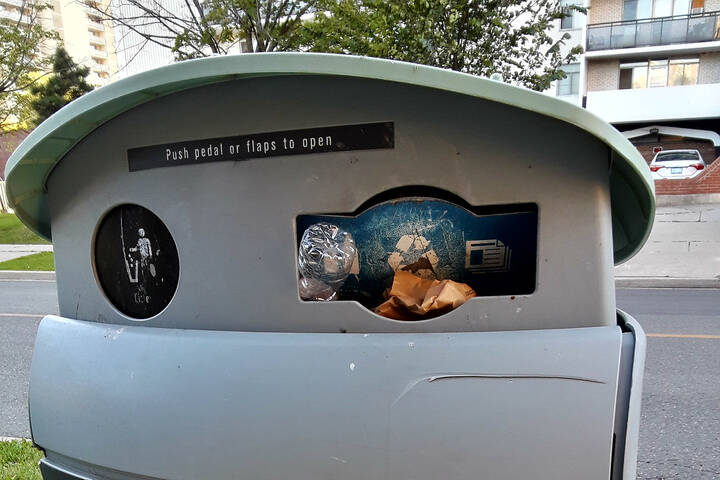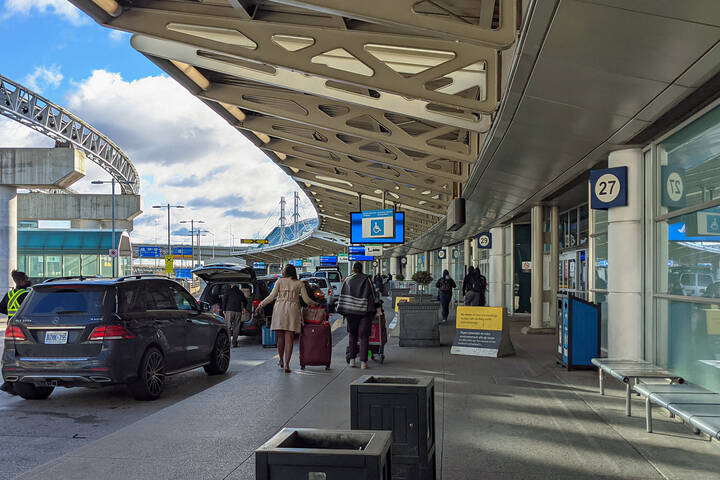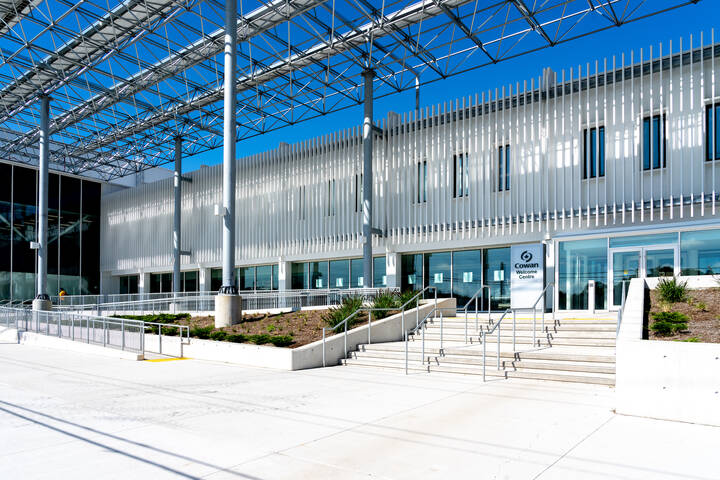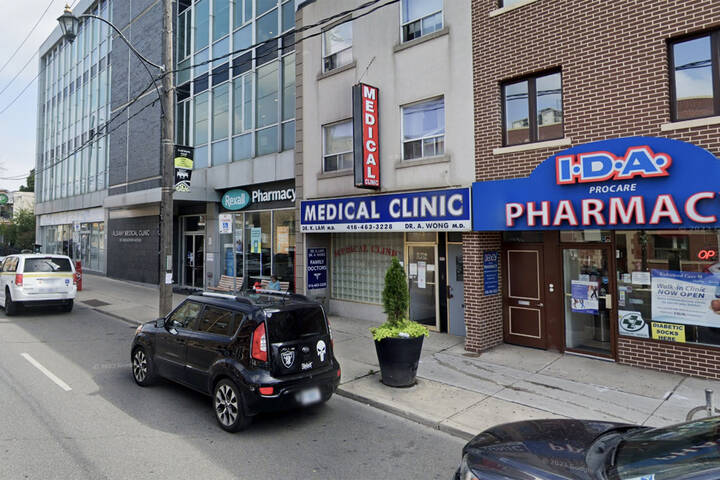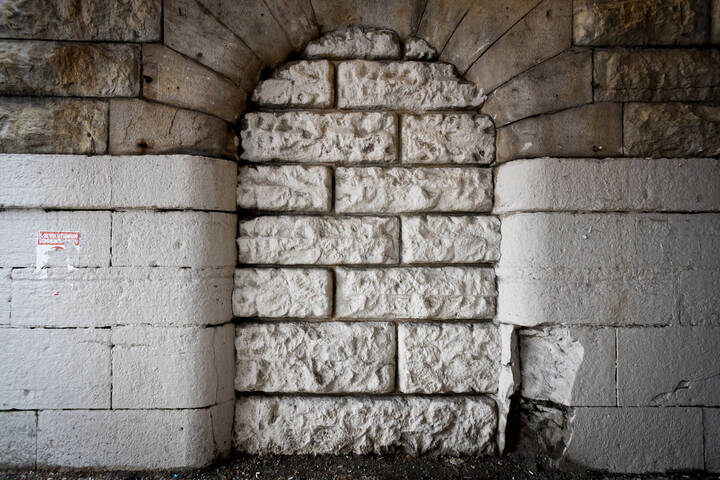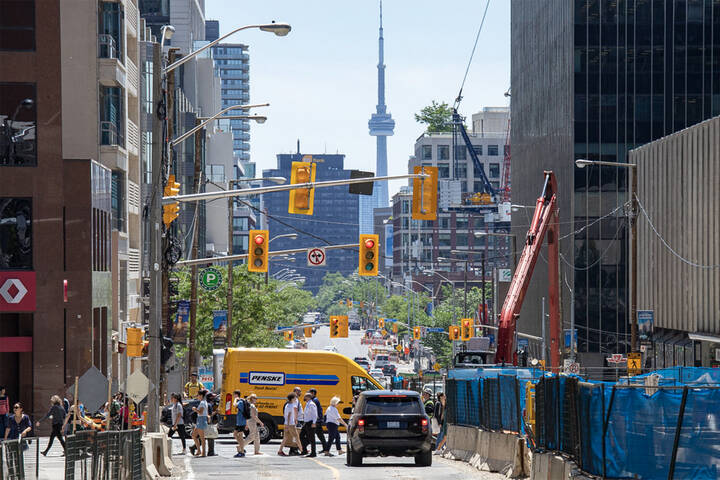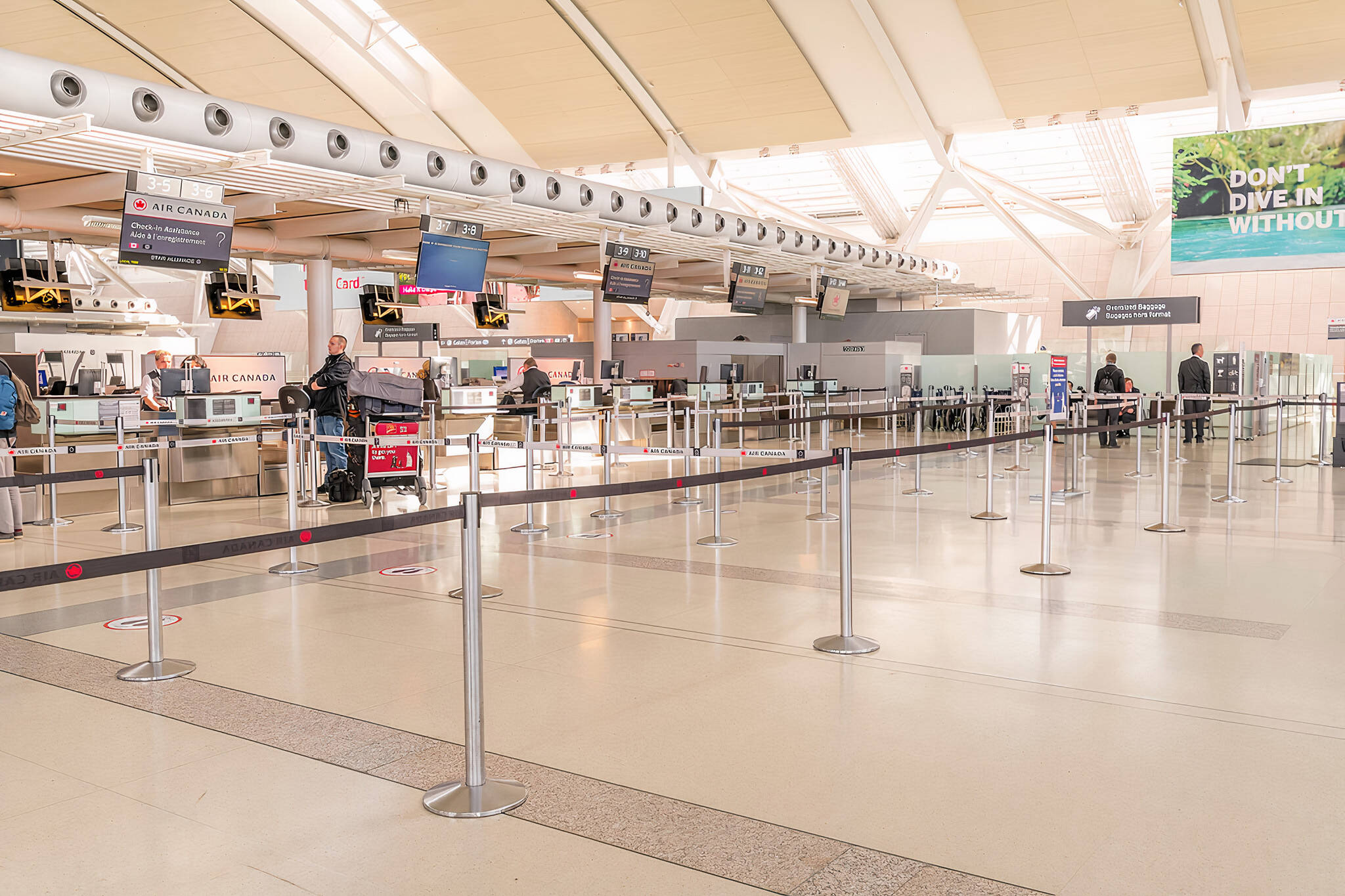
New travel rules come into effect for Canada today and here's what you need to know
Prime Minister Justin Trudeau has made it abundantly clear that now is just not the time to travel, but new restrictions come into effect today for those who, for whatever reason, have to leave the country during a global pandemic.
Starting today, all international travellers entering Canada will be required to undergo a mandatory three-day quarantine period at an approved hotel while waiting for polymerase chain reaction (PCR) test results.
Travellers are now required to receive a PCR test upon arrival in the country, and, unlike rapid testing, PCR tests take multiple days to process — which explains the three-day duration of the hotel stay.
#NowIsNotTheTime to travel. The Government of Canada advises that you avoid non-essential travel outside of 🇨🇦. Learn more about the travel measures in place to help limit the spread of #COVID19: https://t.co/SNTW2Hs2In
— Transport Canada (@Transport_gc) February 22, 2021
The federal government announced its preliminary list of approved quarantine hotels for the four Canadian cities currently allowed to accept international travellers (Toronto, Montreal, Vancouver, Calgary) last week, and two more hotels have since been added to Ontario's list.
In Toronto, six hotels have been designated government-authorized facilities for the mandatory quarantine period, including Alt Hotel Pearson Airport, Fairfield Inn & Suites Toronto Airport, Four Points by Sheraton, Holiday Inn Toronto International Airport, Sheraton Gateway Hotel in Toronto International Airport and Sheraton Toronto Airport Hotel & Conference Centre.
When announcing the new restrictions at the end of January, Prime Minister Justin Trudeau explained that travellers would have to pay out of pocket for the hotel stay, adding that costs could amount to more than $2,000 when taking into account the private PCR tests m and required hotel health and safety measures.
According to the government's quarantine hotel webpage, however, prices of these hotel stopovers may vary by location and include costs associated with the food, room, security, transportation and infection prevention and control measures.
Starting February 22, new testing and quarantine rules will be enforced for people flying or driving back to Canada. Learn more about the new border measures that will help stop the spread of #COVID19 and new variants: https://t.co/R2QA7nG0SJ pic.twitter.com/n3db7iWJ1F
— Canada (@Canada) February 22, 2021
If a traveller's car is parked in one of the airport's parking lots and within walking distance from the airport, they will be permitted to drive themselves to the hotel, though they must go straight there without stopping.
If not, they can take a designated shuttle bus, taxi or limousine.
All guests will be provided with three meals a day and free Wifi during their stay, and they will not be permitted to leave their room unless escorted outside for limited and monitored outdoor time.
Returning travellers will also be required to follow a number of rules during their hotel quarantine, including self-monitoring for symptoms of COVID-19 and reporting back daily through ArriveCAN, following the code of conduct of the hotel and paying for all costs associated with the three-night stay including any damage to the hotel room or property.
Travellers will also have to limit face-to-face contact with others, and always wear a non-medical mask when opening the door to receive meals, speaking face-to-face with hotel personnel or being escorting outside their room.
Anyone whose test comes back negative after the three-day period will be free to go home to quarantine under what Trudeau referred to as "increased surveillance and enforcement" until the end of the 14-day period.
Those who test positive, on the other hand, will not be permitted to return home and will instead have to wait out the remainder of their quarantine period in a designated government facility to prevent further spread.
And in addition to these new air travel rules, new testing and quarantine requirements for travellers at land ports of entry also come into effect today.
As of Feb. 22, it is mandatory for travellers arriving at Canada's land ports of entry, unless exempted, to present proof of a negative COVID-19 molecular test result taken in the U.S. within 72 hours before entry into Canada, or proof of a positive COVID-19 test conducted between 14 and 90 days before arrival.
Unless exempt, travellers entering Canada at land borders will also be required to take a test using a self-swab kit, which can be taken either at the traveller's quarantine location or at a border testing site.
In a statement, the Public Health Agency of Canada said self-swab kits will be handed out at all 117 land points of entry in the country, and there will be on-site testing provided at five high-volume land ports of entry as of Feb. 22.
Eleven additional ports of entry will also provide this service as of March 4, and the testing kit will include instructions on how and when to collect their second required test on day 10 of their 14-day quarantine.
"The measures we are taking at the border will help us prevent travel-related cases of COVID-19 in our communities," said Health Minister Patty Hajdu in a statement announcing these measures.
"These testing requirements at our land border will also help us detect and address any cases caused by variants of concern. While our government has taken strong action to respond to COVID-19, we all have a part to play in stopping the spread. Canadians should not be travelling now."
Latest Videos
Latest Videos
Join the conversation Load comments
